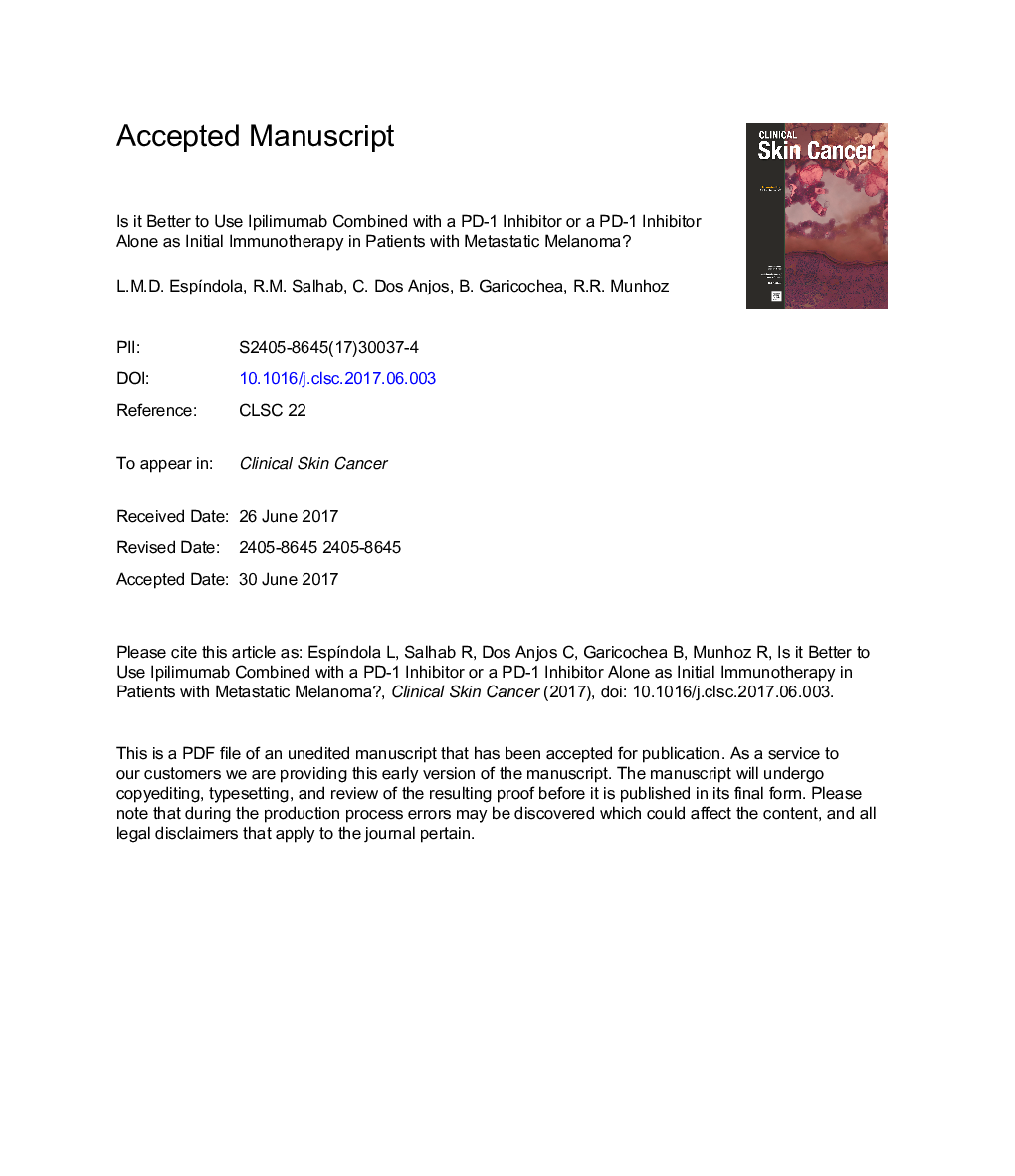| Article ID | Journal | Published Year | Pages | File Type |
|---|---|---|---|---|
| 8712278 | Clinical Skin Cancer | 2017 | 23 Pages |
Abstract
The use of immunotherapy in the form of monoclonal antibodies that target proteins involved in the modulation of the immune response, or checkpoints, is among the standard treatment options for patients with advanced melanoma. Ipilimumab, an anti-cytotoxic T-lymphocyte associated protein 4 (CTLA-4) agent, was the first monoclonal antibody to be approved for clinical use as monotherapy to treat this disease. Significant advances were witnessed as a result of Programmed Death Receptor 1 (PD-1) blockade with pembrolizumab and nivolumab, agents that resulted in improved outcomes and reduced toxicity when compared with ipilimumab or cytotoxic chemotherapy. More recently, robust antitumor effect was demonstrated in the setting of combined CTLA-4 and PD-1 blockade with ipilimumab and nivolumab, albeit at a cost more pronounced in immune-related adverse events and unclear benefits in terms of overall survival in comparison to single-agent anti-PD-1 therapy. As a result, the optimal first-line therapy for patients with advanced melanoma remains debatable, and clearly not all patients are candidates for combined checkpoint blockade. In this review, we revisit the available literature that interrogated the efficacy of single-agent anti-PD-1 treatment and the combination of ipilimumab and nivolumab as well as aspects that may help guide treatment decisions in a scenario in which the standard of care remains unclear.
Related Topics
Health Sciences
Medicine and Dentistry
Dermatology
Authors
Lucas M.D. EspÃndola, Renata M. Salhab, Carlos Dos Anjos, Bernardo Garicochea, Rodrigo R. Munhoz,
